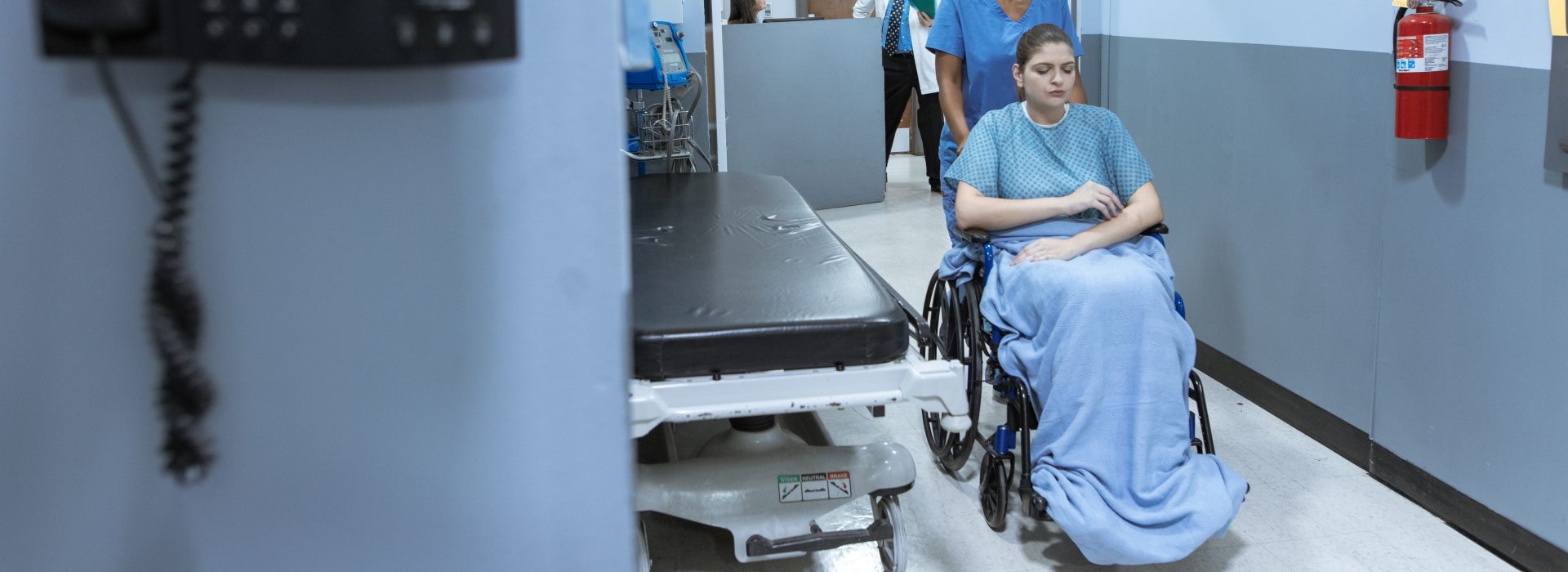NDIS Continence Assessment
It is important to remember that everyone with incontinence problems should be assessed by a continence health professional. We provides core support and continence assessment services for NDIS participants
Safe and effective continence assessment and care is an integral part of helping people maintain their independence. It’s important to remember that you’re not alone. Over 5 million Australians are affected by incontinence, affecting both men and women of all ages and backgrounds.
Incontinence is the term used to describe the loss of control of your bladder or bowel, or both. Being aware of bodily sensations such as feelings of having a full bladder, or memory of how, when and where to respond is one of the first ways to regain control. Many people feel too embarrassed to discuss incontinence, but it’s important to know that you’re not alone and that it can be managed, treated and in many cases cured.
Let IHCS help you
When it comes to supporting you with continence care, clinical nursing and personal care services can support you to remain independent in your own home. Be sure to contact our friendly contact team today to discuss your care options and develop a tailored plan to meet your personal circumstances.
Continence Assessment
Incontinence has an enormous impact on a person’s quality of life. It adds significant burden on family, support workers and is a major factor in deciding to go into residential care.
Incontinence also puts people at greater risk of health issues such as falls and pressure injuries.
Incontinence has financial implications due to the cost of continence aids. It can affect a person’s general wellbeing and make them socially isolated due to embarrassment. There are different types and causes of incontinence. A continence assessment can help establish a plan to meet the individual needs of a client.
NDIS Continence Assessment in Australia
At IHCS, our compassionate staff can assist with practical and professional continence advice and management. Our trained home support workers are skilled at assisting people with incontinence in a sensitive and understanding way. We understand the sometimes embarrassing nature of incontinence and offer personal and confidential education and support. We also offer practical help, such as sourcing commode chairs, bedpans and other urinary supports.
If your continence issues are as a result of your disability, your continence products and aids should be funded through your NDIS plan.
Our NDIS Continence Services include:
Continence management and disability support services are provided for clients to support them with the following:
- Assessment for and, if required, assisting with the application of disposable pads, pull-ups and absorbent aids
- Assistance with commode chairs, bedpans, urinals, catheters and urinary drainage appliances
- Assistance in using continence aids and appliances and managing continence aids
CONTINENCE / CATHETER CARE Our nurses provide urinary catheter changes and general care. Our services also cover colostomy care and management.
WOUND CARE Our services include simple to complex wound care management. This includes the application of compression bandaging or compression stockings, and negative pressure wound care therapy.
How do I make sure incontinence products are included in my NDIS funding?
The simple answer is Pre-Planning.
Pre-planning refers to the preparation we recommend you do before your first Planning Meeting (see more in our NDIS pre planning resource).
1. You need to specifically mention continence in your planning meeting or it will be missed altogether.
As your NDIA planner to allow for a continence assessment and follow up review/s (approx 5 – 7 hours therapy per annum) to be approved for you in your NDIS plan under the category “individual assessment/therapy and/or therapy (including assistave technology)”.
The Continence Foundation of Australia suggest you prepare the following information to take to your first planning meeting:
- Which products do I use now?
- Is my incontinence being managed effectively by the products I am currently using?
- Do I need a continence assessment to make sure I am managing my incontinence effectively?
- Do I need a continence review to determine if my needs have changed since my last assessment?
- Is my incontinence preventing me from achieving my goals? If so, what can be done to improve the situation?
- More generally, can my incontinence be better managed?
NDIS AND FUNDING FOR YOUR CONTINENCE PLAN
For Continence Assessment, support is funded under Capacity Building – Improved Daily Living.
A comprehensive continence assessment takes time.
You will require a minimum of 4 hours for a full assessment, report and product prescription.
If your needs are complex and include multiple products or travel then additional hours may be required.
A Continence Plan and/or Therapy may be recommended in the initial report.
Additional hours will be required to implement a continence plan and or therapy to improve your continence status and participation.
What does a continence nurse do?
Role of the Continence Nurse in Australia
The continence nurse provides expert care to patients with urinary and/or fecal incontinence by conducting a focused assessment, performing a limited physical examination, synthesizing data, developing a plan of care, and evaluating interventions. IHCS Continence Nurses available in Victoria, Darwin, New South Wales, Queensland and Adelaide.
Address:
Melbourne, AustraliaE-mail:
[email protected]
